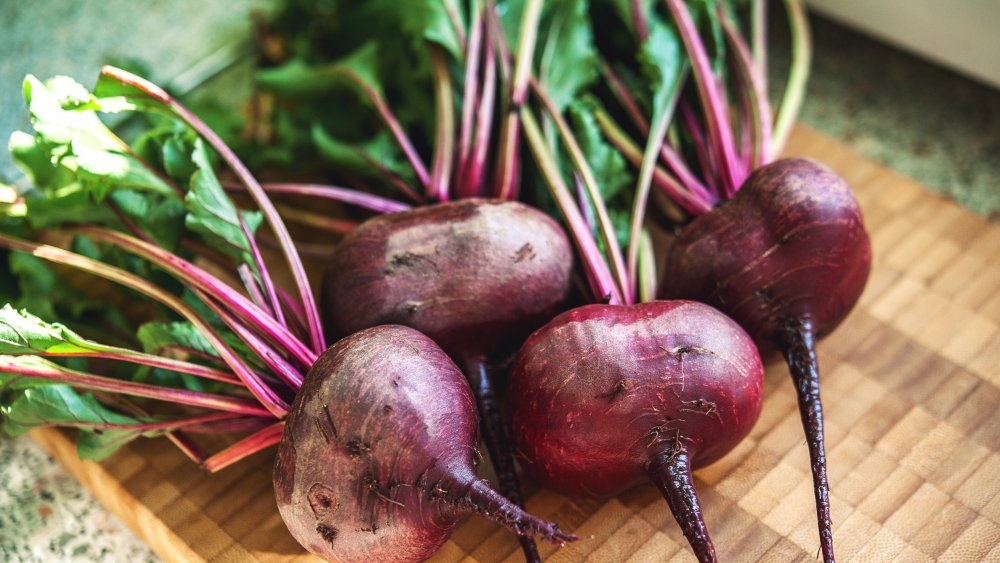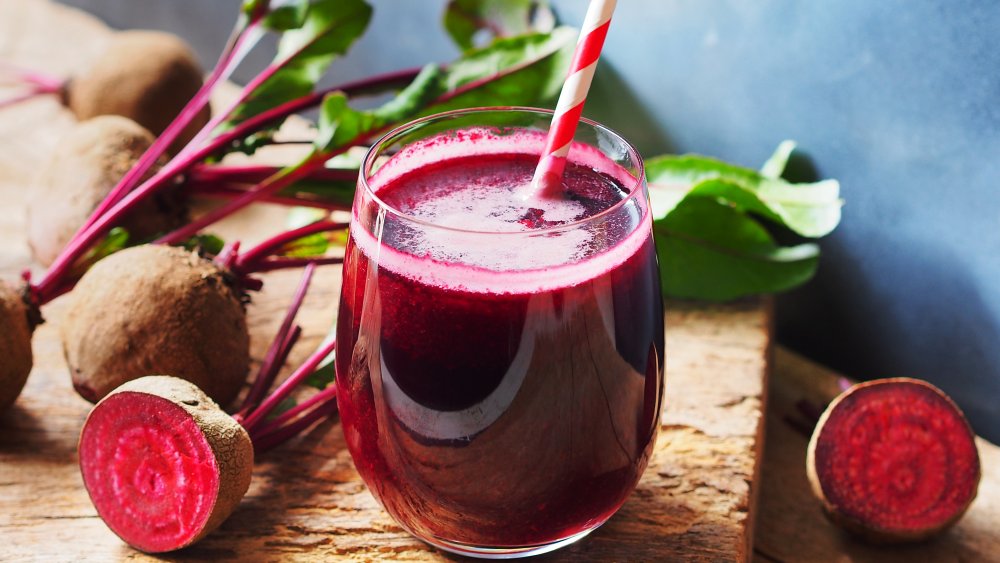When You Eat Too Many Beets, This Is What Happens
Beets make a great addition to any winter dish. Not only does this root vegetable add a subtle sweetness and appealing deep red color to any meal, but it is also packed with many health benefits. Beets actually get their distinctive color from the high amounts of betalains they contain. Betacyanin, a rich red plant pigment, is also a known antioxidant that can protect the body against free radicals and even reduce the risk of cancer by protecting against certain carcinogens, according to Reader's Digest.
Beets also contain another important antioxidant called lutein, which plays an important role in maintaining eye health. Lutein is a carotenoid that helps prevent the macular degeneration that can come with age. In fact, consuming beets has been shown to reduce the risk of many age-related diseases, including dementia. Beet juice produces nitric acid, which has been shown to increase blood flow to the brain, reducing the risk of dementia. Additionally, beets' high fiber content may reduce the risk of many other illnesses, including colon cancer, heart disease, and diabetes, per Healthline.
Beets can contribute to kidney stones
Even the roots, an often overlooked part of the plant, offer great nutritional benefits. Beetroot juice has been shown to reduce high blood pressure, improve digestion, and even improve athletic performance, thanks to their endurance-boosting nitrates, according to Medical News Today. Beets can also contribute to a stronger heart, according to Eat the Seasons. The beta carotene and folic acid found in their roots have been linked to a reduced risk of inflammation, clogged arteries, and heart disease.
However, beets can cause some negative side effects if too many are consumed in a short amount of time. They contain high levels of oxalate, a compound that can attach to other minerals in the body, per Healthline. This can interfere with mineral absorption or lead to a build-up of small crystals, which sometimes cause kidney stones to develop. Although beets pack a powerful nutritional punch, it is a good idea to eat the vegetable in moderation, especially for individuals who are prone to kidney stones.

